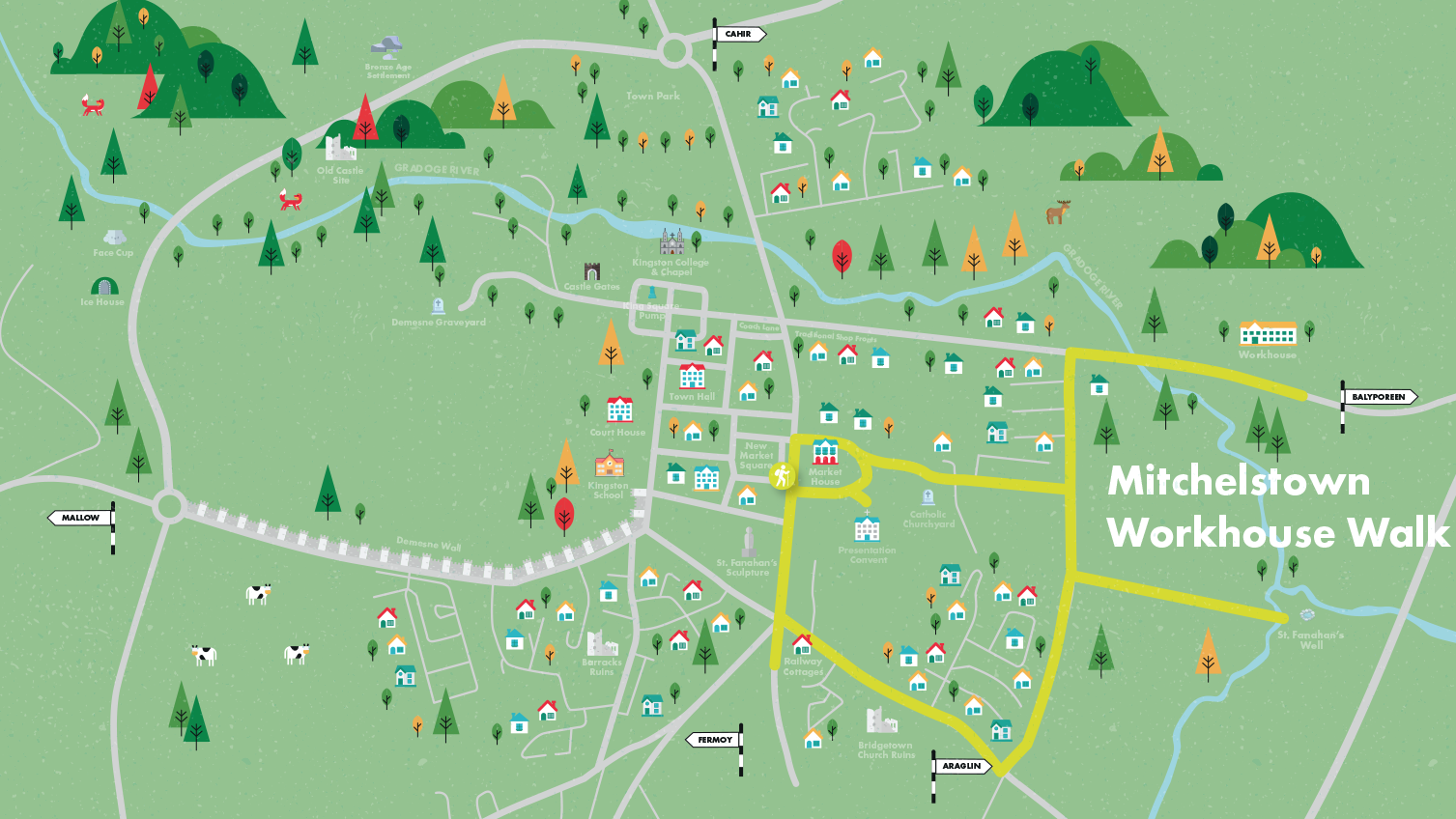Mitchelstown Workhouse Walk
- Footpath
- Mitchelstown New Market Square
-
Difficulty:
easy
-
Distance:
3km
-
Time:
1hr
MITCHELSTOWN is a plesant market town at the foot hills ot the Galtee Mountains. It is one of the finest historic planned towns in Ireland retaining its original plan after two centuries of growth and change. It was laid out in the 18th and early 19th centuries by the King family, who variously held the titles of Baron Kingston, Viscount Kingsborough and Earl of Kingston. The town plan used the natural features of the site to great advantage, with the picturesque mountains as its backdrop. The present town replaced an older settlement originally called Villa Michel was founded by the Normans in the 13th century. This village was located near the medieval castle to the west of the present town. By the 14th century, the area belonged to the White Knights, chiefs of the Clangibbon, a branch of the powerful FitzGerald dynasty. Their castle in Mitchelstown was destroyed in the wars of 1641. In the 17th century, the Kings, Barons Kingston, became owners of the White Knights lands through marriage. By the late 1700s, their estates totalled over 60,000 hectares, by which time a neo-Classical styled county house was built as their family seat.
Between 1776 and 1825, the 2nd and 3rd Earls of Kingston built the present town to a design by John Webb, a student of the famous English landscaper, Capability Brown. The new town was designed to make use of striking vistas and on a grid pattern with wide main streets intersected by smaller streets and two spacious squares, one Georgian in style and the other for markets. Principal streets were closed off by views of important buildings or the nearby mountains.
The influence of the Kingstons on the locality began to wane in the second half of the 19th century when agrarian strife ended the landlord system of land ownership. This unreast created great tension between the landlord and tenants of the Kingston estates which made international headlines.
Mitchelstown today with its wealth of architectural heritage and preserved streetscapes remains one of the finest Georgian towns in Ireland.








